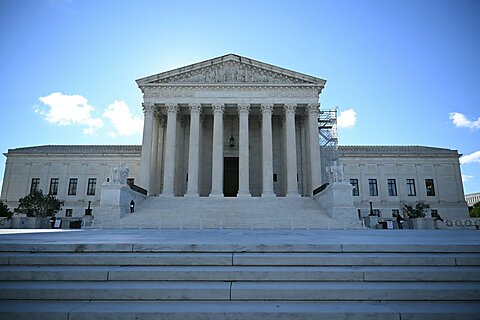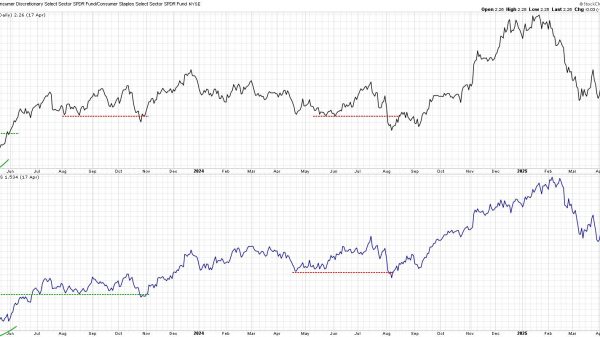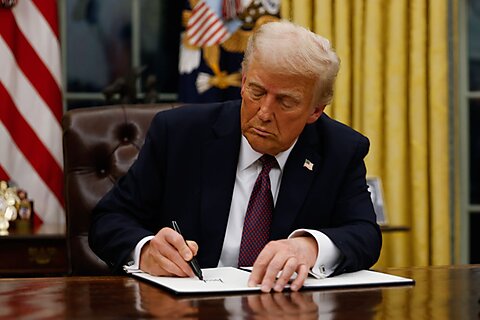The Trump administration issued an executive order (EO) on January 20, 2025, to create a process to designate some international criminal organizations and drug cartels as foreign terrorist organizations (FTOs). There have been no updates to the State Department’s list of FTOs yet.
To be designated an FTO, the State Department’s Bureau of Counterterrorism (SDBCT) must demonstrate that the organization engages in terrorist activity according to the definition in 8 USC §1182(a)(3)(B), 22 U.S. Code § 2656f(d)(2), or that the organization retains the capability and intent to conduct terrorism. The definition in 22 U.S. Code § 2656f(d)(2) is clearer and closest to that commonly understood definition of “terrorism” by the public in scholars. The most relevant portion reads:
(2) the term “terrorism” means premeditated, politically motivated violence perpetrated against noncombatant targets by subnational groups or clandestine agents.
That definition contrasts with that in 8 USC §1182(a)(3)(B), which is poorly written (like the rest of the Immigration and Nationality Act) and broad enough to include much criminal activity unrelated to terrorism. The SDBCT analyzes whether the group has committed attacks, planned attacks, prepared for attacks, funded possible future attacks, or retains the capability and intent of doing so.
Under the definition in 22 U.S. Code § 2656f(d)(2), drug cartels are not FTOs because they are criminal firms seeking monetary profits. They are not organizations motivated to conduct politically motivated violence unless it increases their profits. However, the definition under 8 USC §1182(a)(3)(B) is so broad that it could include criminal organizations motivated by profits rather than politics. That’s why the recent Trump administration order doesn’t mention 22 U.S. Code § 2656f(d)(2) and instead relies on a process laid out here that allows designating organizations as FTOs under the simpler, broader definition in 8 USC §1182(a)(3)(B).
The courts can review the designation of entities as FTOs, and those entities themselves can challenge the designation. Still, drug cartels aren’t likely to do so because they are criminal organizations. However, individuals prosecuted because of the new designation may be able to challenge it. The more likely outcome is that the courts will defer to the president’s judgment on national security.
Cartels and terrorists have different motivations, and this Trump order exploits ambiguities in current law to blur the two. When it designates cartels as FTOs, the government will rely heavily on the capabilities of the cartels and cite their extreme violence and interference with politics in other countries. Most cartel violence targets rival criminal organizations, civilians, and officials who are either corrupt or seek to prosecute them. But they rarely target symbolic targets unless doing so is in service of a wider profit-seeking goal.
Cartels have territory, but it’s better understood as local monopolies enforced through violence rather than for territorial control and governance as ISIS attempted. Terrorists, on the other hand, seek political power or to affect politics. The difference between cartels attacking governments to increase their profits and terrorists attacking governments to take them over is the definitional difference between terrorists and normal criminals. The US government could today defund the cartels by legalizing drugs and immigration, not terrorists.
There are many reasons why the Trump administration is seeking to designate cartels as FTOs.
The first is to massively increase the US government’s powers to crack down on the border despite the low and falling apprehensions that preceded Trump’s election. Declaring that already existing criminals on the border are terrorists gives the president enormous military and other legal powers to combat them. The application of laws against providing material support to terrorists would increase scrutiny of the over $154 billion in annual immigrant remittances to locations with cartel activity, which could now include Latin America and the Caribbean. The result would be the confiscation of funds, higher transaction costs that would hit migrants and their families like a tax, and fewer financial institutions willing to facilitate such remittances. Economic sanctions to deter terrorism will provide President Trump with sweeping new powers to punish countries to the south that do not cooperate more with immigration enforcement.
Second, declaring cartels to be terrorists supports his other EOs that declared the border is (absurdly) being invaded and that there’s a national border emergency. An invasion requires an invader, and FTOs are closer to a military threat that may justify a declaration of invasion, whereas normal illegal immigration doesn’t provide a justification. After all, the presence of FTOs has justified other US military invasions overseas.
Since there’s no actual invasion or national border emergency, re-designating criminal organizations that smuggle drugs and people across the border as FTOs is a rebranding that reinforces the other border enforcement actions. Trump recently delayed threatened tariffs on Canada in exchange for the Canadian government declaring drug cartels as FTOs, which bolsters his argument that drug cartels are terrorists by claiming that another country agrees, even though Canada only did so because of US government threats.
Third, declaring drug cartels as FTOs could change the political and media narrative about terrorism on the border. Terrorist attacks on the border have not occurred despite decades of fear, and politicians can only cry wolf for so long before looking ridiculous. Zero Americans were murdered in attacks on US soil committed by foreign-born terrorists during the Biden administration, the first time a president hasn’t faced a deadly attack since before the Ford administration.
Designating drug cartels as FTOs transforms cartel violence into terrorism, seemingly justifying these fears in a superficial and misleading way. Just a day after Trump issued his order, suspected cartel gunmen shot and robbed hikers near the border. Customs and Border Protection described the crime as “A U.S. citizen and a Canadian citizen were robbed and attacked by armed suspected Mexican cartel terrorists.” If every crime committed by cartel members is now a terrorist attack, then the amount of terrorism along the border will surge via a re-accounting of crimes that would have occurred anyway, and many will be fooled by this definitional mirage, at least for a while.
The fourth reason is to more harshly punish immigrants for illegally crossing the border. Unlawful entry is a low-level criminal offense, and only in some cases, but most illegal immigrants hire smugglers. Many of those smugglers are drug cartels or at least affiliated with them in some way. Giving money to an FTO is a serious crime that can result in a long prison sentence. Thus, redesignating cartels as FTOs transforms many illegal immigrants into material supporters of foreign terrorist organizations—defying common sense and the intent of lawmakers.
Fifth, designating cartels as FTOs will result in more asylum seekers losing their asylum claims. Trump has shut down asylum along the border by canceling the CBP One App and continuing the existing ban on seeking asylum at ports of entry. However, declaring a border emergency, invasion, and that drug cartels are FTOs gives more reasons for asylum seekers to claim that they are fleeing a well-founded fear of persecution. That’s a conundrum for the Trump administration that could result in more future asylum seekers or those awaiting a hearing to eventually win their claims. However, providing material support for terrorist organizations bars immigrants and asylum seekers. Since some asylum seekers paid smugglers who could be tied to cartels, the courts can safely deny them asylum because they materially supported an FTO.
Sixth, the administration can use anti-terrorism laws and the military to freeze assets more easily, prosecute smugglers, and attack with military force (the last may require an AUMF). The penalty for terrorism offenses is greater than for drug offenses. Anti-terrorism laws also allow for greater secondary sanctions on foreign banks and firms doing business with FTOs, while cartels and human smugglers only have their funds targeted by law enforcement. The increased regulatory compliance burden and potentially higher costs of doing business with cartels-cum-terrorists will reduce their access to the financial system. Furthermore, the bar for counterterrorism operations is lower than for law enforcement actions against cartels.
Drug cartels are vicious criminals, but they are profit-seeking criminals who are not motivated by political, economic, religious, or other social goals. There is a tendency to label the worst criminals as terrorists because crimes terrorize. That feeling is understandable, but that’s not the purpose of the anti-terrorism laws, and that’s certainly not consistent with any reasonable understanding of the real terrorist threat (small as it is).
Congress has given the president too much authority to prosecute a war on terrorism without sufficient oversight by the legislature and the courts. By designating drug cartels as FTOs, the Trump administration unlocks new powers for itself, creates a new media narrative that could fool many, and reinforces the rest of its anti-immigration and border enforcement agenda.

















